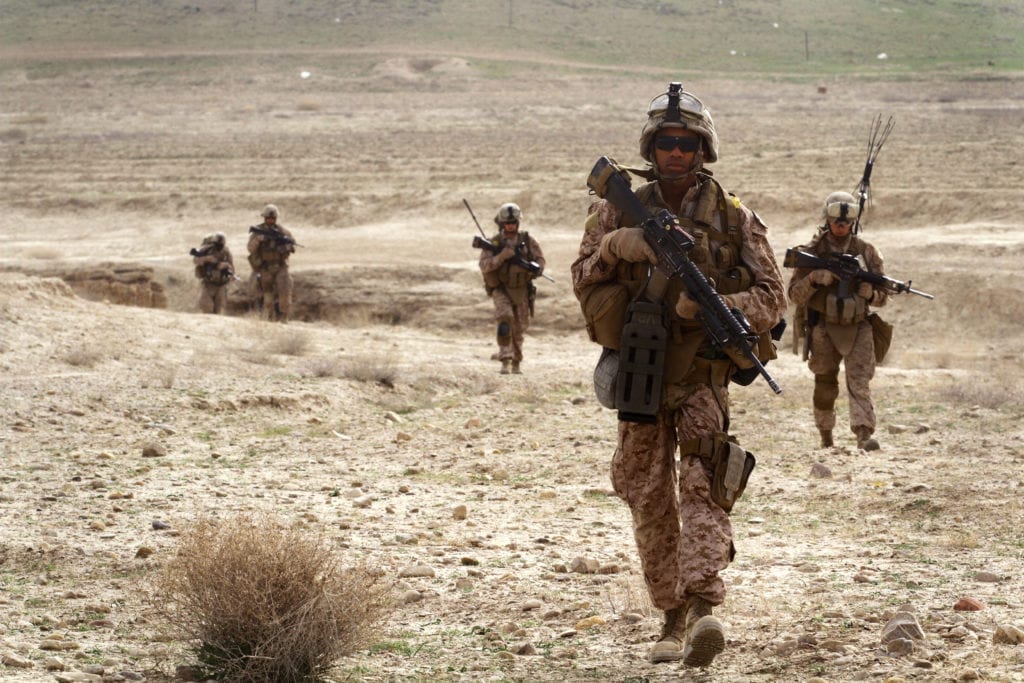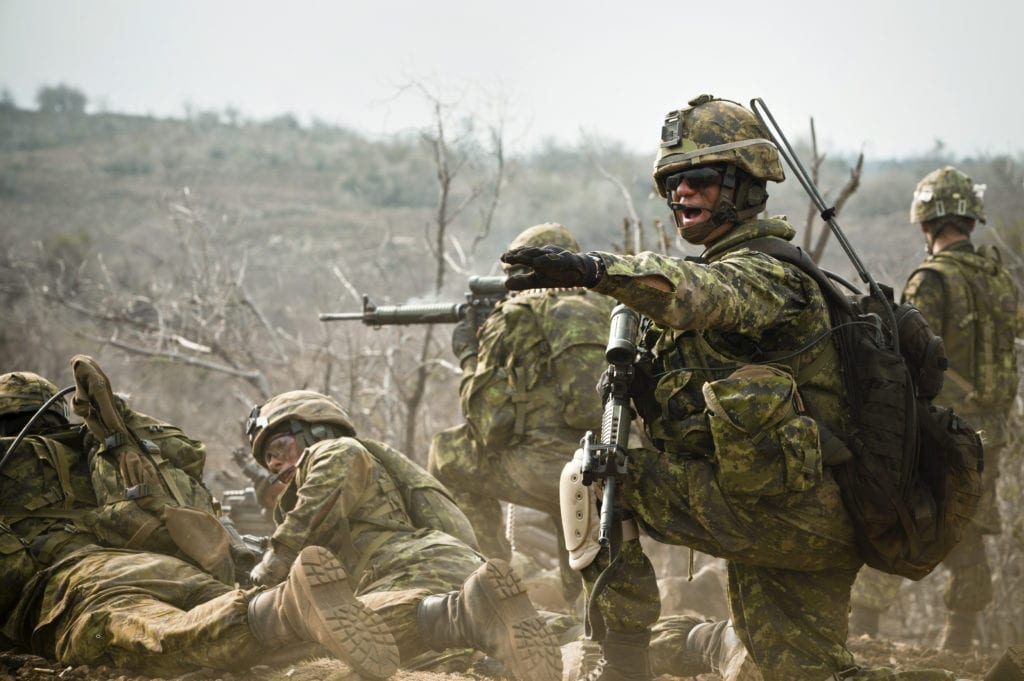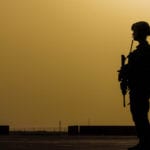I only regret that I have but one life to lose for my country—Nathan Hale
“Mr. Roever, give me one good reason… uh… just one good reason why I should not pull this trigger.”
I had heard that voice on other occasions when he was strung out on prescription meds, generously prescribed by military doctors, to mask his pain. The injuries sustained in his body were nothing compared to the suffering incurred in his soul when he survived the blast that took out his best friend and several other members of his squad. Traumatic physical injury and survivor’s guilt weighed heavily upon the psyche of the young soldier on the other end of the telephone line.
In my mind, I could see him gingerly caressing the weapon, knowing full well he was capable of squeezing the trigger. His deliberation was to somehow end the continuing nightmares and onslaughts from hell that had captured his consciousness. He was desperate. He was confused. He was hopeless.
Gently, I said, “tomorrow… you have tomorrow.” I reasoned with him and shared with him the hope that only Jesus can bring to a distraught spirit.
Before long, I heard the quiet sobs of a broken heart relinquishing the pain of the past, casting the cares of his life onto the shoulders of the only One who could sustain his burden.
Post Traumatic Stress is normal. It is a natural occurrence in the lives of those who have served in combat situations. It is not atypical, not is it to be viewed as a weakness; hence, I do not use the “D” word… Disorder.
Not Disorder

Like a self-fulfilling prophecy, the D-word insinuates chaos. Make no mistake—there is confusion and mental pain, but I do not believe, nor do I accept for myself or for other warrior friends that disorder is an accurate definition of our condition. Stress… yes. Order gone wild… no.
Recently, a bystander overheard me ask the U.S. Surgeon General, “Sir, why do we use the term disorder when describing the state-of-mind of our wounded warriors?”
The bystander, a mental health professional with a major medical insurance agency, piped up before the Surgeon General could answer, “If you don’t label it a disorder, insurance will not cover the cost for treatment.”
That does not work for me. That self-fulfilling prophecy only prepares a warrior for failure. I want to be prepared for success by believing that if something is broken, it can be fixed with time, love, purpose, and the power that comes from God. I do not believe it can be fixed with Oxycontin, Percocet, alcohol, or any other substance that could possibly make matters worse by spiraling in a whole new set of problems.
My History
Let me take you back in my own life—way back to January of 1969 in Vietnam. It was hot in January. It was hot all the time, but the climate of my soul was about to soar to the pinnacle of my spiritual thermometer.
First, let us go back even further, all the way back to the innocence of my childhood and youth—as unblemished as a virgin.
When my peers would offer a cigarette, I would just say, “No.”
When they asked why not, I easily answered, “I don’t know how to smoke.”
I never saw a cigarette between the fingers of my father’s hands, nor in the lips of my mother. Smoking was never introduced to me as a habit, much less a lifestyle. Oh sure, I saw people smoking in public, but I never saw it in the privacy of our home. And my father’s wisdom on the perils of smoking, which was scoffed at by many of that day, had come full circle.
Going to movies was taboo with my family. As a child, I never saw a horror movie. Even innocent black and white television shows were not permitted in our home. My forward-thinking parents feared where the media would lead this country, so I never focused on the bigger-than-life heroes that Hollywood created.
The same was true for alcohol, drugs, and sex outside of a marriage relationship. People called our family prudes because we were not hip with the television. We were not hip with the movies. We were just plain “uncool.”
Staying the Course
So how could a young man, as innocent as I was, enter into the Naval Special Warfare Division, and possibly hope to survive in the wild and wicked days of the 1960s were sex, drugs, and alcohol abuse were rampant? In the Golden Triangle of Southeast Asia, especially in Vietnam, sex, drugs, and alcohol were as commonly discussed as M16’s, Claymore mines, and B-40 rockets.
Was it even remotely possible for an innocent young man to be exposed to such and survive?
Yes.
It was, and I did. My anchor was rooted in concrete moral standards, ethical righteousness, and unflawed character. All were set firmly on the foundation of God and family.
Dealing with Killing Others
It is important to realize that the defense of the defenseless, the help of the helpless, and the giving of hope to the hopeless are the most “Jesus things” a man will ever do. To lay down one’s life for a friend (1 John 15:13 NKJV), Jesus declared, is the highest form of love. If a policeman (or a soldier) has the power to intervene in a volatile situation, and an innocent is killed, does the policeman assume the guilt of killing that innocent person?
When the Bible says, “You shall not kill,” it speaks of a murder; otherwise, taking the life of an ant, a flea, a bird, or the slaying of an animal for food would not be permitted, murder is wrong.
Putting one’s life on the line to stop terrorists from terrorizing and murdering even when it means taking the life of the terrorist, is an honorable thing. I can honestly say I am thankful that I had the honor to serve my country and defend innocent people who would most certainly have been slaughtered at the hands of the enemy.
Vietnam
My cut-short tour of duty in Vietnam began in January of 1969. The worst-of-times in war for me came when we had to do body counts after horrendous firefights and exchanges of hostilities with the Viet Cong. One specific tally, my first, that plagues me to this day happened in an area we call Devil’s Hole. The sight remains as vivid for me now as it was then.
I remember how the flesh of my index finger turned white from pressing against the curved lever of the trigger. Surely, the oily indentations and crevices of my fingerprint were engraved in the metal. Before the initial squeeze of the trigger, I was convinced that I would throw down my gun and run at the sound of the first round of fire from my enemy. Just the opposite happened. I used the weapon and fought for my life. I fought for the lives of my comrades-in-arms. I fought for my nation and its democratic way of life. And I fought for the Republic of South Vietnam in hopes of preserving freedom for their people.
I have not the slightest regret for my actions. The memories of the short time I spent in the Mekong Delta are still deeply ingrained in the backlogs of my mind. War and remembrance are not strange bedfellows.
Working through the Conscience

Every man must deal in his own way with his own conscience about the eternal question of a truly just or unjust war. While the Gulf War under George H.W. Bush was unanimously heralded a justified war, the Vietnam War under Lyndon Johnson was discredited. People rioting in the streets during the Vietnam era were replaced by yellow ribbons and homecoming parades for those who served in the Middle East.
How does an “unjustified” war go full bore and a Vietnam veteran say that he has no regrets?
There is a simple answer for such a complex question: I am at peace with myself. It is my conscience and my perceptions. It is not yours. It is not a fellow warrior’s. It is not politics. My justification lies at ease within the confines of my heart.
Vietnam veterans were called baby killers, but I never killed a child. We were called warmongers, but I have always hated war. I still despise war. It rapes. It plunders. It dismembers. Every scar on my body is verification of that. But I love freedom! My love of freedom is barely more measurable than my hatred of war, just enough never to want a war, but sufficient enough to fight for the ideals of one nation, under God, indivisible, with liberty and justice for all.
Was the transition from the innocence of a peace-loving family to the violence and horrors of war easy? Not in the slightest.
Pushing through Despair
After the bodies were counted that day at Devil’s Hole, I returned to our forward operation base, which was a floating barge in the middle of a Mekong Delta river. On that barge was our housing, our cocoon from the heat— a clean, air-conditioned space that could not turn down the temperature of my burning heart nor of my charring soul.
When I put my face into my pillow, I screamed a phrase that I had heard as a child, as a young Boy Scout, “For God and Country… for God and Country… for God and Country!”
The next time I would scream into a pillow would be at Brooke Army Medical Center in San Antonio, Texas. With almost half my skin blown off my body, my face charred to the skull, no hair, one ear, and one nostril, I buried my face deep in a pillow and screamed. I do not remember saying “For God and Country” that day. I was in much-too-much pain. It hurt like hell…not in the cursing sense, but in the literal sense. Was this my hell for the fight I had fought? Was this the hellish pain coursing through my body in waves, raging from nausea to hallucination, my reward?
The last breath from my lungs exhaled into the pillow, which served as the muffler for my crying soul. Of course, when you run out of breath, you feel like you have run out of time. You feel like you have run out of hope, and there was nothing to relieve the pain. That is called absolute, total despair.
I lifted my head to suck in air.
Wait a minute…why suck in air? Why not go ahead and die?
Do you know that it is impossible for a human being to hold his breath until he dies? It is impossible because every cell in the brain is dictating to every nerve in the body, telling the lungs to inhale, to suck in air because a human body is wired to live, not to die.
Raising my head and gasping for air, my one good eye saw the burned skin from my face attached firmly to the fibers of the pillowcase. Gone with my face was every sliver of hope. If there was a shred of hope, I deemed it gone.
Remembrance can be a friend or an enemy

My history must not dictate the parameters of my future. Rather, my history has very carefully steered me in the right direction toward the future. Reality is focused and sharpened by pain, relieved by prayer, and secured with hope and the certain knowledge that everything in my life—good, bad, or ugly, will turn to the good of my own salvation, and that nothing ever planned against me from the pit of despair or the pit of hell, can overcome the firm foundation on which this innocent life was set.
As I travel the highways of this nation I love, I marvel at the wonders of God’s creation. When I enter a mountain range and view stark, barren stones ascending to the heavens, I am in awe. On more than one occasion, I have been amazed to see that out of the smallest cracks, with not the slightest hope of its every being tended by a gardener, grows a small cedar dark green branches bent away from the wind.
How could it possibly survive? The angle of its development has been shaped by the pressures against it, and somehow it stands.
The tree would never have survived in soft soil in a clay pot on a back porch—coddled, watered regularly, shaded from the sun, with nary a wisp of wind to water it. Oh no, not this cedar. It is firmly entrenched in the rock of its salvation. Its strength lies in the fact that it has been buffeted by adversity.
Yes, I have seen war, and most certainly have known God’s guiding hand throughout my life. All the buffeting by adversity that I have experienced has made me a better man. I do not dwell on the days and years of pain, nor do I contemplate on what might have been.
My broken places have made me stronger through the tempering of fire.
I have learned to “triumph in my troubles and rejoice in my sufferings, knowing that pressure and affliction and hardship produce patient and unswerving endurance. And endurance develops maturity of character… And character of this sort produces the habit of joyful and confident hope of eternal salvation. Such hope never disappoints…” (Romans 5:3–5 Amplified Bible).
Because I have learned to triumph through my tragedies, I am now able to guide other wounded warriors, like the young man on the other end of the telephone line, toward hope-filled futures and wholeness after the ravages of war.
I have hope because I know “All things work together and are fitting into a plan for good… for those who love God and are called according to His design and purpose” (Romans 8:28 Amplified Bible).
I am at peace.
Photos: Runnin’ and Gunnin’ by the U.S. Marines. Licensed under U.S. Govt. Work.
Another Patrol by the U.S. Marines. Licensed under U.S. Govt. Work.
120722-M-VB788-092 by the U.S. DoD. Licensed under U.S. Govt. Work.








